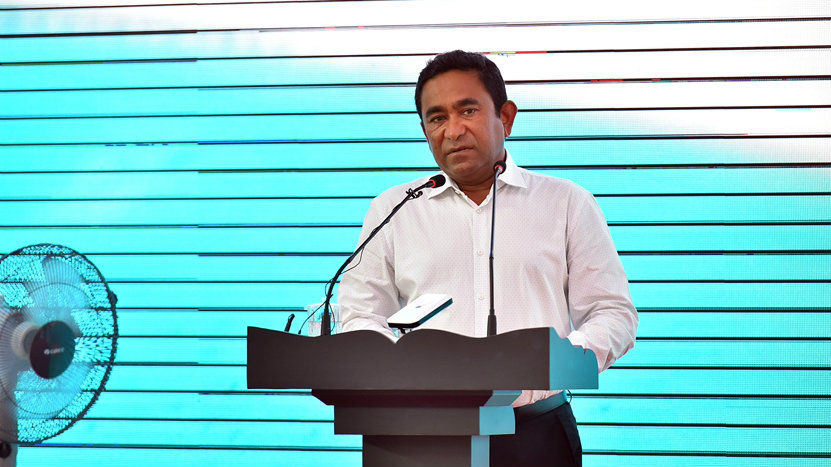Democracy or money? Excerpts from Yameen’s May 2 speech
Here are excerpts from Yameen’s May 2 speech in which he speaks at length on his views of democracy, criticises persisting international pressure and opposition’s lobby efforts for sanctions.

05 May 2016, 09:00
Here are excerpts from President Abdulla Yameen’s speech on the island of Kudahuvadhoo in Dhaalu Atoll on May 2, where he speaks at length on his views of democracy, criticises persisting international pressure and slams lobby efforts for sanctions by former President Mohamed Nasheed, who was handed a 13 year jail sentence on terror charges.
On foreign relations:
“What I want to say is that the Maldives these days faces some coercion from the outside world. Along with that, it must be said, that if the people of Kudahuvadhoo stay steadfast, we want to think about the characteristics we think about. Every one of us Maldivians must think, about the things we need when we rule, when we bring about the developments necessary.
“We need systems, organisation to bring in finances. You have to think about which states are willing to assist and give us money in these matters. Among these states, we are using as an example, the developed countries of the first world. Previously it was the colonial powers. Or the self-proclaimed big democracies. And then amongst the example countries we notice big countries like China. We could also assess their capacity in things like assisting us.
Become a member
Get full access to our archive and personalise your experience.
Already a member?
Discussion
No comments yet. Be the first to share your thoughts!
No comments yet. Be the first to join the conversation!
Join the Conversation
Sign in to share your thoughts under an alias and take part in the discussion. Independent journalism thrives on open, respectful debate — your voice matters.




